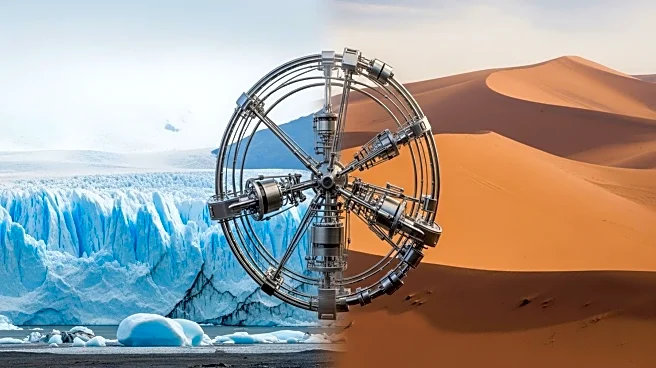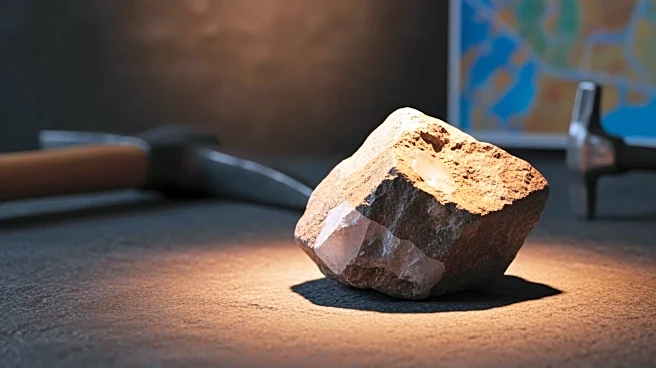What's Happening?
Iceland has inaugurated the Steingerour carbon capture installation at the ON Power plant, transforming it into one of the world's first near-zero emission geothermal power stations. This facility is expected to contribute significantly to Iceland's 2030 Climate Action Plan targets by capturing CO2 and hydrogen sulfide emissions and storing them as minerals underground. The project is part of the EU Innovation Fund-backed Silverstone initiative, aiming to capture 34,000 tonnes of CO2 annually. Meanwhile, Saudi Arabia has launched a Direct Air Capture (DAC) testing unit at the King Abdullah Petroleum Studies and Research Center (KAPSARC) in Riyadh. This unit is part of Saudi Arabia's Circular Carbon Economy strategy, focusing on capturing CO2 directly from the atmosphere under the region's hot conditions. Climeworks, a company involved in both projects, is expanding its global operations, including a U.S. headquarters in Austin, Texas.
Why It's Important?
These projects represent significant advancements in carbon capture technology, which is crucial for global decarbonization efforts. Iceland's initiative aligns with its national objectives to reduce carbon emissions by 55% by 2030, showcasing the potential of geothermal energy in decarbonization strategies. Saudi Arabia's DAC unit is part of a broader ambition to capture and utilize up to 44 million tonnes of CO2 annually by 2035, indicating a strong commitment to carbon management solutions. These efforts could set new benchmarks for carbon capture technology, influencing global policy decisions and encouraging private investment in sustainable energy solutions.
What's Next?
Iceland's Silverstone project will continue to scale up its carbon capture capacity, aiming to reduce emissions by 150,000 tonnes over its lifetime. Saudi Arabia plans to develop large-scale carbon capture utilization and storage hubs to consolidate industrial emissions and enable permanent storage or conversion of CO2 into products. These initiatives may lead to further collaborations between science, business, and government, potentially expanding the use of carbon capture technology across Europe and the Middle East.
Beyond the Headlines
The success of these projects could influence global decarbonization strategies, highlighting the importance of collaboration between different sectors. The development of clear regulations and policies will be crucial to ensure the sustainable operation of carbon capture technologies. Additionally, these projects may inspire other countries to invest in similar technologies, contributing to global efforts to combat climate change.









